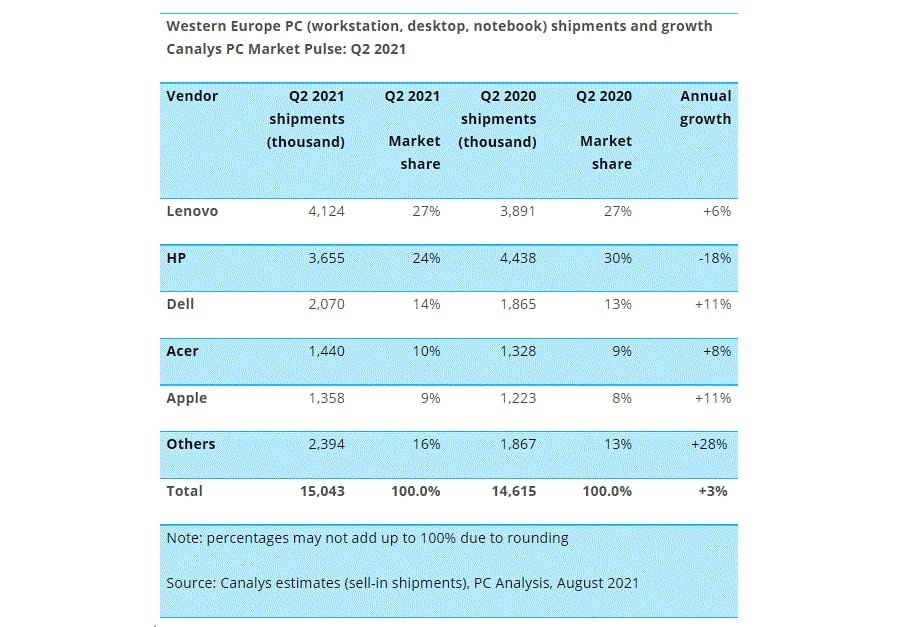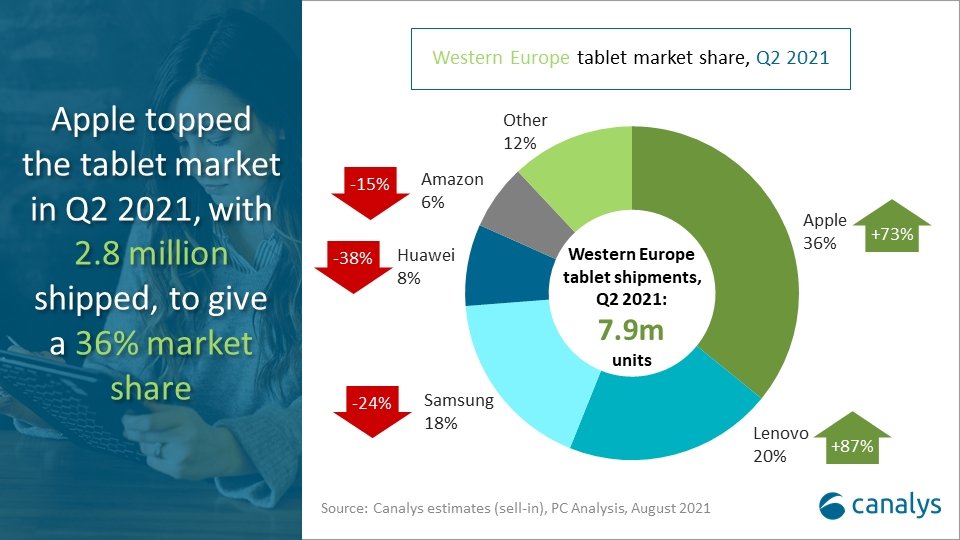Apple is continuing to benefit from high demand for Macs and iPads in Western Europe, according to Canalys, with shipments raising as countries continue to embrace remote working as they recover from COVID-19.
The PC market in Western Europe is continuing to see year-on-year growth for the fifth consecutive quarter, analysts at Canalys claim. While a 3% increase year-on-year to 15 million units for Q2 2021 is marginal, it continues a year-long trend of high annual improvement for the industry as a whole.
As part of the analysts report, it seems that Apple’s Mac business is benefiting the most from the improving environment. Apple is the fifth-largest computer vendor in the region, with a 9% market share, following behind Acer, Dell, HP, and Lenovo.
Figures in the report reckon Apple achieved 1.36 million shipments of Macs in Q2 2021. This is up 11% compared to Q2 2020, and far outpacing the industry average of 3% growth.
“Demand is still strong. Western Europe has emerged into a post-COVID new normal’, a rapidly digitalizing world, as shown by the robust shipment numbers,” according to research analyst Trang Pham. “Had supply issues been resolved, we could have seen even higher growth in the PC market.”

While the Mac improvements are good news for Apple, its iPad performance was deemed to be even better for the company.
Tablet shipments grew 18% year-on-year for the industry at large, with a total of 7.9 million units shipped by all vendors.
Typically the dominating vendor in the market, Apple still saw considerable improvements in Q2 2021, seeing year-on-year growth of 73% from 2.8 million estimated shipments. This gives Apple a market share of 36% for the region.
It is claimed the newest M1-powered iPad Pro was “warmly received in Western Europe.”
Apple’s growth wasn’t the highest among major vendors, as Lenovo saw an 87% improvement in the period, giving it second place with a 20% market share. However, it was in stark contrast to Samsung, Huawei, and Amazon which saw a year-on-year drop in shipments of 24%, 38%, and 15% respectively.

The improvements in the market may not necessarily last, with the reduction in COVID-19 work-from-home initiatives and in-class education potentially tempering demand down the road.
“Overall, the economic recovery looks promising in Western Europe,” said Canalys Research Manager Ben Stanton. “Demand for PC products is still growing, but unlikely to skyrocket again without another catalyst as strong as the 2020 pandemic’s digital acceleration.”



